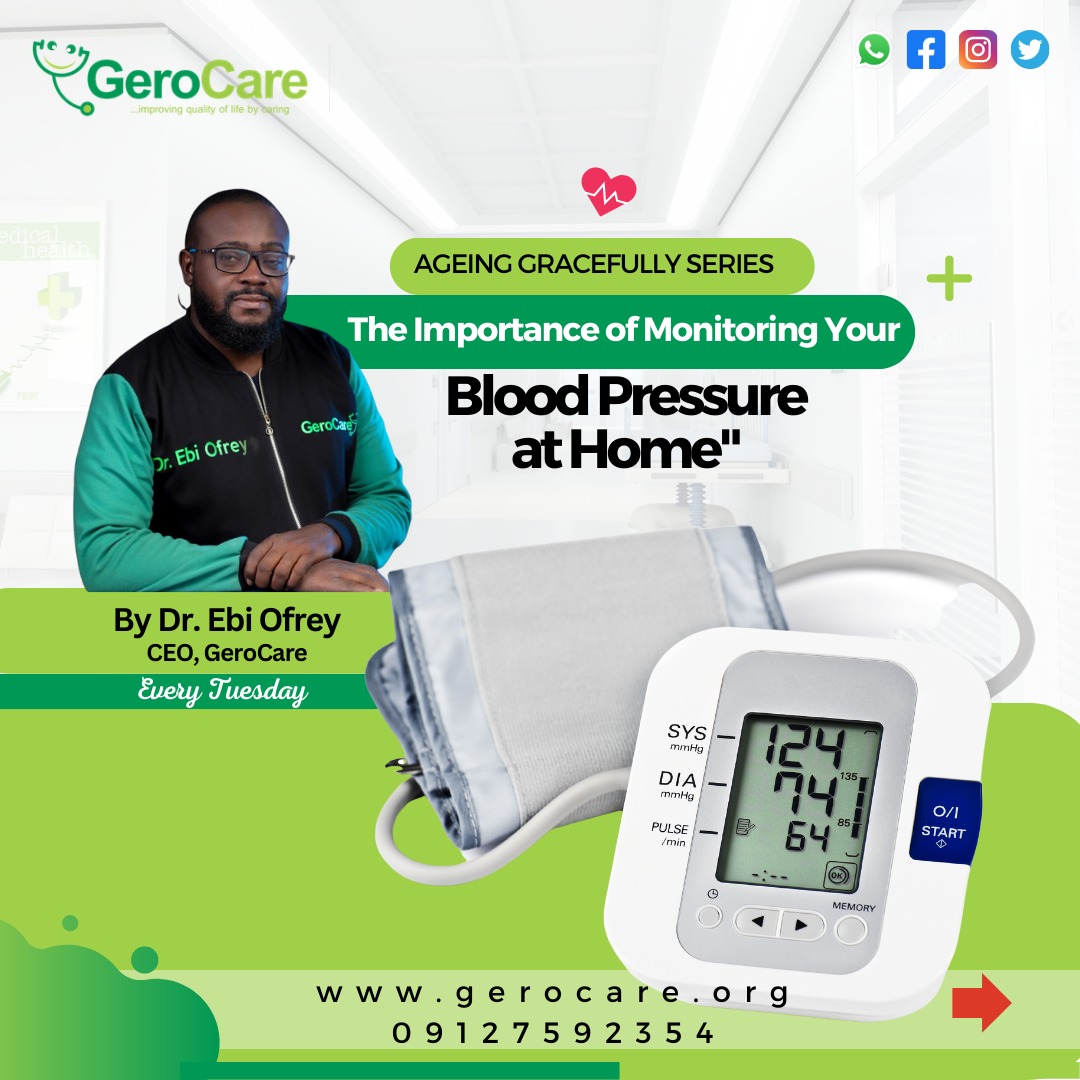By Dr. Ebi Ofrey CEO GeroCare
As we get older, our health becomes more important than ever. One way to keep track of your health is by monitoring your blood pressure at home. In this article, we will explore the importance of monitoring your blood pressure at home and discuss how to do it.
First, let’s talk about what blood pressure is. Blood pressure is the force of blood against the walls of your arteries. It is measured in millimeters of mercury (mmHg) and is expressed as two numbers. The first number, called systolic pressure, measures the pressure in your arteries when your heart beats. The second number, called diastolic pressure, measures the pressure in your arteries when your heart is at rest between beats.
Monitoring your blood pressure at home is important because it can help you and your doctor keep track of your blood pressure over time. This can help detect any changes in your blood pressure and allow for adjustments to your treatment plan as needed. It can also help you identify any factors that may be affecting your blood pressure, such as stress or certain medications.
To monitor your blood pressure at home, you will need a blood pressure monitor. There are two types of blood pressure monitors: manual and automatic. Manual monitors require a stethoscope and an inflatable cuff that you pump up by hand. Automatic monitors are easier to use and require no special training. They use a cuff that inflates automatically and displays your blood pressure readings on a digital screen.
To use an automatic blood pressure monitor, simply wrap the cuff around your upper arm and press the start button. The cuff will inflate and then deflate, and your blood pressure readings will be displayed on the screen. It is important to take your blood pressure at the same time every day, such as in the morning before breakfast or in the evening before bed.
If you have hypertension, your doctor may recommend that you monitor your blood pressure at home. This can help ensure that your blood pressure stays within a healthy range and that your treatment plan is working effectively.
In conclusion, monitoring your blood pressure at home is an important part of managing your health, especially if you have hypertension. It can help you and your doctor keep track of your blood pressure over time, detect any changes, and adjust your treatment plan as needed. If you have concerns about your blood pressure or need help choosing a blood pressure monitor, talk to your doctor.
![]()

